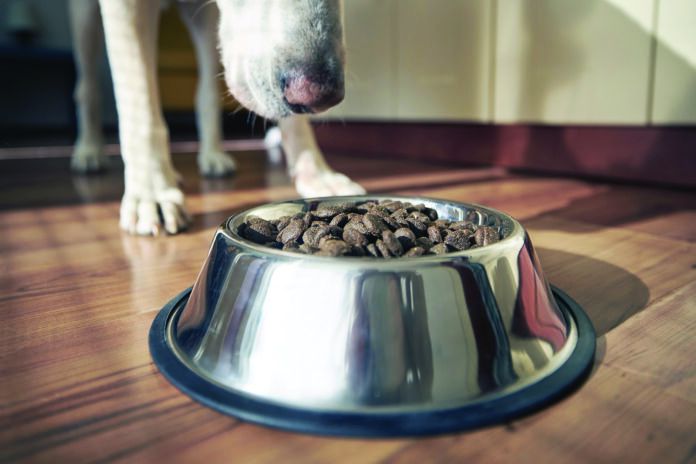You’re trying to decide between two different brands of canned dog food. The clincher is that one is advertised online as preservative-free, so you go with that one. Will it be better for your pet?
No. Canned dog food doesn’t require preservatives. The canning process results in airtight storage, and that preserves it just fine. In other words, calling a canned dog food preservative-free is a marketing tool. Canned dog food in general is preservative-free, whether it says so or not.
It tends to be online marketers of dog foods who use the term rather than the manufacturers themselves. That is, you won’t tend to see the words “preservative-free” right on the can but in ads by companies that sell the food.
Can a dry dog food really be preservative-free?
It’s a different story for dry dog food. Dry food for your canine does need preservatives, in no small part because dog food tends to be very high in fat. Fat is the ingredient most prone to spoilage. (You’ve heard about how it’s bad to cook food in rancid oils, which are types of fats.) Once food is spoiled, it no longer tastes as good. More important, its nutrient levels may be reduced, and it may even be unsafe to eat.
Granted, sometimes you may see an ad online for a dry dog food that’s preservative-free. But that’s probably not the case. (If it were, the company would soon be out of business.) Dry dog foods called preservative-free by advertisers are in all likelihood free of artificial preservatives — those synthesized in a laboratory. Rather, they contain preservatives found in nature, such as various forms of vitamin E. (Yes, vitamin E is a preservative, and on a can of pet food it might be listed as something like DL-alpha-tocopherol acetate.)
Are natural preservatives really better for your dog than artificial ones?
For decades people have been claiming that artificial preservatives cause debilitating illnesses ranging from arthritis to kidney disease to cancer. But those claims just have never stood up to scientific scrutiny.
The lack of evidence hasn’t erased consumer fear, however, which is why dog food manufacturers today almost always use natural preservatives. Their aim is to please their customers.
That’s fine, but it’s important to understand that natural preservatives are not as powerful as synthetic ones — they don’t protect the food for as long. Manufacturers are aware of this and should account for that in their “best by” and “use by” dates. Your own job is to make sure you store your dry dog food properly to keep it from spoiling before its time.
Proper storage for best food preservation
A lot of people like to keep opened bags of dog food in a plastic container with an airtight lid that fits snugly. That’s a good idea. It keeps out insects and other pests. But don’t empty the food from the bag into the container. Reputable manufacturers put a lot of research into the bags, testing the food’s shelf life in its original packaging. The bags can help stop nutrients from degrading. Keeping the original bag also allows you to identify the lot number and UPC code should there be a recall. They let you know if your food is from the recalled batch.
Do be sure to squeeze out as much air from the bag as possible after feeding, then close the bag as securely as possible. Air that gets in can hasten food spoilage, making nutrients break down faster than they would otherwise and also letting in potentially harm-
ful bacteria.
As for dog food in a can, any that is not put into the bowl should be refrigerated right away. If you’e not going to refrigerate leftover canned food, throw it out, advises the Food and Drug Administration. Your dog should not eat it several hours after is has been opened unless it is kept at refrigerator temperatures (lower than 40 degrees Fahrenheit).
Finally, unopened dog food, both canned and dry, should be stored in a cool, dry place where the temperature does not exceed 80 degrees. Excess heat can cause nutrients to break down.





